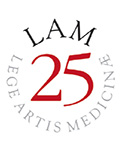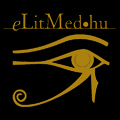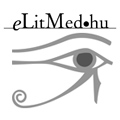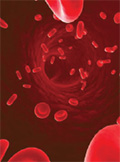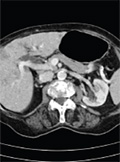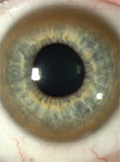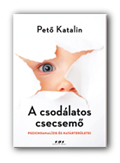The eLitMed.hu medical portal uses computer cookies for convenient operation. Detailed information can be found in the Cookie-policy.
Lege Artis Medicinae - 2015;25(11-12)
Content
[Actual questions of the longterm anticoagulant therapy]
[In the last few years we have witnessed some changes in the area of the chronic oral anticoagulant therapy. The nomenclature of the anticoagulant drugs has been modified and concern has arisen about the possible vascular calcification in patients on long-term warfarin therapy. Because of the novelty of the “new” anticoagulants (dabigatran etc.) has been lost, instead of their previous acronym (NOAC) the DOAC (direct oral anticoagulants) term has been accepted for their marking. Experimental and clinical data suggested that vitamin K-antagonists (VKA) in addition to the coagulation factors disturb the production of other proteins, too. By inhibiting the matrix Gla protein (MGP), the chronic warfarin therapy promotes the calcification in media of the arteries as it was shown in women participating in routine mammography. However, the clinical importance of this observation is dubious, because the incidence of acute coronary events is not increased in cases of warfarin therapy in patients with atrial fibrillation. Notwithstanding, in addition to the bleeding complications we have to take into account of the possible harmful vascular calcification, too, at the indication of chronic coumarin therapy. Therefore, this therapy should be applied only in proper cases, such as non-valvular atrial fibrillation with a high risk of ischaemic stroke or unprovoked venous thromboembolic disease with a high risk of recurrence. The results of the Swedish anticoagulant register show that the efficacy and safety of the well-managed coumarin therapy may be superior to the treatments with DOACs. However, DOACs are indispensable in certain cases in which a previous “probe” coumarin treatment is unfounded.]
[The asthma-COPD overlap syndrome]
[The asthma bronchiale and chronic obstructive pulmonary disease (COPD) are not simple diseases, but heterogenous syndromes. In their most typical forms, asthma and COPD are clearly distinguishable, but many patients demonstrate features of both conditions. This is the asthma - COPD overlap syndrome (ACOS). We present the latest findings in the pathogenesis, clinical characterisation, diagnosis, and management of ACOS. Because the limitations of the studies need future research, mainly to develop targeted therapy. ]
[Paths and mispaths - the current challanges of the treatment of schizophrenia: a cognitive perspective]
[Schizophrenia is a severe chronic mental disorder accompanied by acute psychotic episodes. The prognosis for and the quality of life of the patients is not primarily determined by the psychotic episodes that often require hospitalization, but rather by the disorder-specific cognitive deficits that persist and progress during the illness and precede the manifestation of the disorder. The greatest challenge in treating the disease is the treatment of the cognitive impairments, since our pharmacological therapeutic repertoire is mainly effective in controlling and preventing manifestation of the psychotic symptoms. The study provides a brief report on the anomalies of the current pharmacology- and hospital-centered care that are however a considerable obstacle to a modern neurocognitive developmental rehabilitation of people with schizophrenia with the aim of promoting social integration. This paper also summarizes the importance of the pharmacological treatments from the neurocognitive perspective, and finally presents the possibilities and results of the psychosocial rehabilitation in the treatment of the neurocognitive deficits in the hope of encouraging changing and a therapeutic paradigm shift. ]
[The positive additive effect of rosuvastatin on platelet aggregation parameters in patients with cerebrovascular disease]
[Statin therapy is the cornerstone of anti-atherosclerotic treatment, and it considered obligatory in the secondary prevention of atherosclerotic diseases. Rosuvastatin is well-known and efficacious lipid-lowering agent and seems to have benefitial antiplatelet efficacy and anti-inflammatory profile. The aim of our study was to determined the antiplatelet effect of 20 mg rosuvastatin (Xeter®, Richter Gedeon Nyrt.) in clopidogrel treated cerebrovascular patients. 20 patients with documented ischaemic cerebrovascular events and on 75 mg clopidogrel daily treatment were included in our study. 20 mg generic rosuvastatin significantly decreased total cholesterol (5.67 vs. 3.99 mmol/l, p<0.05), low-density lipoprotein (3.11 vs. 1.92 mmol/l, p<0.05) and trigliceride levels (1.75 vs. 1.29 mmol/l, p<0.05), and there was a non-significant high-density lipoprotein increasing (1.28 vs. 1.36 mmol/l, p=0.09) and high-sensitive C-reactive protein level decreasing tendency (3.35 vs. 2.99 mg/l, p=0.07). Rosuvastatin treatment significantly decreased ADP 5 µM (46.15 vs. 31.35%) and collagen 2 mg/ml (68.62 vs. 52.22%) induced platelet aggregation (p<0.05). 20 mg rosuvastatin has a robust antilipaemic profile with benefitial additive effect on agonist induced platelet aggregation.]
[Rare genetic disease of copper metabolism]
[INTRODUCTION - Wilson’s disease is a rare genetic disease of copper metabolism. Nearly, 300 patients in Hungary suffering from Wilson’s disease CASE - 25-year-old male patients were examined because of because speech impairment and ocular symptoms. The increase in blood copper and ceruloplasmin and point mutations in the ATP7B proven confirmed the diagnosis of Wilson’s disease. DISCUSSION - In diagnosis of rare disease is not easy because of the variety of symptoms and the high costs of genetic testing, we would like to draw the attention to it.]
[Community participation in sustainable development - in the wake of community medicine]
[Sustainable development aims to secure the living conditions of the next generations. Currently it fails to achieve its goal as the human destruction of ecosystem is accelerated. Institutions of the developed countries can not control the environmental crisis. The increased environmental degradation is caused by overconsumption, which is mainly driven by the widespread consumption-culture. Failure of institutional solutions drew the attention to the empowerment of communities. Aarhus Convention has legally empowered the local communities and various scientific fields examines community participation. Community Based Mental Health Services has gathered a significant knowledge about the psychosocial processes of community participation and about the participatory-culture. According to our assumption this knowledge can be used in the field of sustainable development. Besides the empowerment of the independent, local communities, concordance, affective experiencing diversity of the members, involvement of experiential experts are all important in the operation of self-organizing, responsible, local communities. We believe that the empowerment and support of eco-conscious communities is an important, new intervention in the field of sustainable development. ]
[„Disease sffair”, „health affair” or „whole-ness affair” in everyday medical practice?]
[In everyday medical practice the diagnostics and treatment of diseases, and the patient’s rehabilitation are in focus. There are not considered in details the personal elements, how disease affects the completeness of human life, in what extent impairs the whole-person anatomical and functional condition, alters abilities, limits activities of daily living, restricts filling the social role. Human personal characteristics are disregarded, environmental factors (that can support and restrict the everyday activities) are leaved out of consideration. Based on the contemporary ideas of human being and health, the aim of this article is facilitating the consideration of human completeness, “whole”-ness at all stages of patient care. Focusing on human wholeness can contribute to better physician-patient interrelationship. An important condition for wholeness-centred approach is the “precurabilitation” view that means the unity and simultaneity of prevention, curing and rehabilitation. ]
1.
Clinical Neuroscience
[Headache registry in Szeged: Experiences regarding to migraine patients]2.
Clinical Neuroscience
[The new target population of stroke awareness campaign: Kindergarten students ]3.
Clinical Neuroscience
Is there any difference in mortality rates of atrial fibrillation detected before or after ischemic stroke?4.
Clinical Neuroscience
Factors influencing the level of stigma in Parkinson’s disease in western Turkey5.
Clinical Neuroscience
[The effects of demographic and clinical factors on the severity of poststroke aphasia]1.
2.
Clinical Oncology
[Pancreatic cancer: ESMO Clinical Practice Guideline for diagnosis, treatment and follow-up]3.
Clinical Oncology
[Pharmacovigilance landscape – Lessons from the past and opportunities for future]4.
5.
